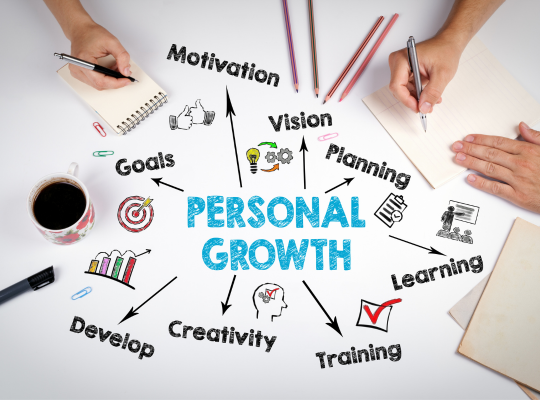Senior leaders are the bedrock of success in an organization. Their choices determine the strategic direction for their firms, fuel innovation, and guarantee their viability. Yet, the intricacy of contemporary business landscapes brings special strategic challenges that require agility, foresight, and resilience. And for senior leaders to succeed, they need to identify and tap into emerging leadership opportunities that have the potential to position their organizations for long-term success.
This is where coaching for senior leaders comes in. Tailored to address the distinct demands of top executives, coaching equips them with the tools to navigate complexities and capitalize on opportunities effectively. In this blog, we explore how senior leadership development through coaching fosters transformation and empowers leaders to excel in strategic leadership roles.
Understanding Strategic Challenges in Senior Leadership
At the senior level, leadership responsibilities go beyond day-to-day management. Leaders must anticipate and address challenges that are often multi-dimensional and high-stakes:
- Market Disruptions: With technological advancement, economic shifts, and changing consumer preferences, firms must be strategically adaptable.
- Complex Decision-Making: Top executives need to make decisions that reconcile conflicting priorities, frequently with insufficient information.
- Talent Retention: The need to attract, develop, and retain top talent remains a critical challenge in the face of evolving workforce expectations.
Navigating these challenges requires not just expertise but also a willingness to rethink traditional approaches. Coaching for strategic leadership helps leaders refine their decision-making processes and develop the resilience to thrive in complex environments.
The Importance of Coaching for Senior Leaders
Coaching for senior leaders offers tailored assistance that corresponds to the specific challenges of the highest executive positions. It allows the leaders to have confidence, clarity and a forward-thinking approach towards their leadership roles.
Key Benefits of Coaching for Strategic Leadership:
1. Enhanced Strategic Thinking
Coaching helps leaders develop a broader perspective, enabling them to anticipate trends, evaluate risks, and align organizational goals with market realities.
2. Improved Decision-Making
Senior leaders are often confronted with decisions that have high stakes. Coaching provides them the frameworks to make considered, informed decisions in high-pressure situations.
3. Leadership Development
Coaching helps leaders raise self-awareness, develop a strong set of people skills and improves engagement with stakeholders, teams, and peers.
4. Embracing Opportunities
Beyond challenges, senior leaders need to create and capitalize on leadership opportunities to spur growth. Coaching enables them to adopt a more proactive mindset and identify an innovative and successful path.
Navigating Strategic Challenges Through Coaching
Senior leaders are often faced with problems without easy answers. Coaching for strategic leadership empowers with tools and strategies to tackle these challenges directly:
1. Managing Change
Change is constant in even the most dynamic industries. Coaching empowers leaders to lead the change so as to effect transition plans without disrupting team morale and productivity.
2. Handling Uncertainty
Strategic decisions often involve navigating uncharted territory. Coaches work with leaders to strengthen their risk tolerance and build frameworks for dealing with ambiguity.
3. Leading Diverse Teams
Globalization and shifting workforce demographics have made diversity a central part of leadership. Coaching helps senior leaders understand different perspectives and foster an inclusive culture that enhances innovation.
Seizing Leadership Opportunities with Coaching
In addition to meeting challenges, coaching also emphasizes ways for leaders to seize opportunities that will elevate their organizations:
1. Driving Innovation
Coaching teaches leaders how to create an innovative environment where teams not only solve problems creatively, but also continuously improve.
2. Building Strategic Alliances
Coaches guide leaders in identifying and nurturing partnerships that align with organizational goals, enabling mutual growth and competitive advantage.
3. Empowering the Next Generation of Leaders
One of the most impactful leadership opportunities lies in mentoring and developing future leaders. Executive coaching increases senior leaders’ ability to transfer knowledge, resulting in a solid leadership pipeline for the organization.
The Impact of Senior Leadership Development on Organizations
Investing in senior leadership development through coaching benefits not only individual leaders but also the broader organization:
- Stronger Organizational Alignment: Coaching enables leaders to align their teams and resources with the organization’s strategic vision, ensuring that all efforts are coordinated toward common objectives.
- Enhanced Performance: Senior leaders who undergo coaching often demonstrate greater efficiency and effectiveness in their roles, driving organizational success.
- Increased Resilience: Coaching fosters an agile and adaptable organizational culture, empowering leaders with tools to handle uncertainties and making organizations more resilient.
Coaching Strategies for Senior Leaders
Senior leadership coaching effectively integrates reflective methods, actionable insights, and tailored strategies:
1. Encouraging Self-Awareness
Leadership begins with understanding oneself. Coaching enables senior leaders to identify their strengths, weaknesses and blind spots so they can lead authentically and effectively.
2. Facilitating Continuous Learning
The best leaders are the ones who never stop growing. Coaching offers opportunities for leaders to continually develop their skills and grow, which is essential to avoid stagnation.
3. Focusing on Long-Term Impact
Although it’s critical to address immediate challenges, coaching also enables leaders to reflect on their legacy and how their decisions will shape the future of their organization.
Case Study: Coaching for Strategic Leadership Success
A Chief Financial Officer (CFO) of a multinational company faced the challenge of balancing cost-cutting initiatives with innovation investment during an economic downturn. With coaching support, the CFO implemented an optimal strategy that balanced operational efficiency with funding critical R&D projects.
This not only developed a stronger financial position but also the launching of innovative products that positioned the company for future growth. This case demonstrates how executive coaching for senior leaders leads to meaningful results by preparing executives to move through complexity and leverage opportunities.
Conclusion
Senior leaders have been leading their organizations through challenges and surfacing growth opportunities. However, excelling in strategic leadership requires more than experience—it demands adaptability, insight, and continuous development.
Coaching for senior leaders provides a structured and personalized approach to addressing strategic challenges while embracing leadership opportunities. Coaching equips senior executives with improved decision-making capabilities, resilience, and a proactive outlook that allows them to lead confidently and purposefully.
Organizationally, investing in senior leadership development means guaranteeing not just the success of those individuals but the sustainability of the business as a whole. In an ever-evolving and complex world, coaching will continue to be one of the most valuable tools to develop the leaders of tomorrow.







